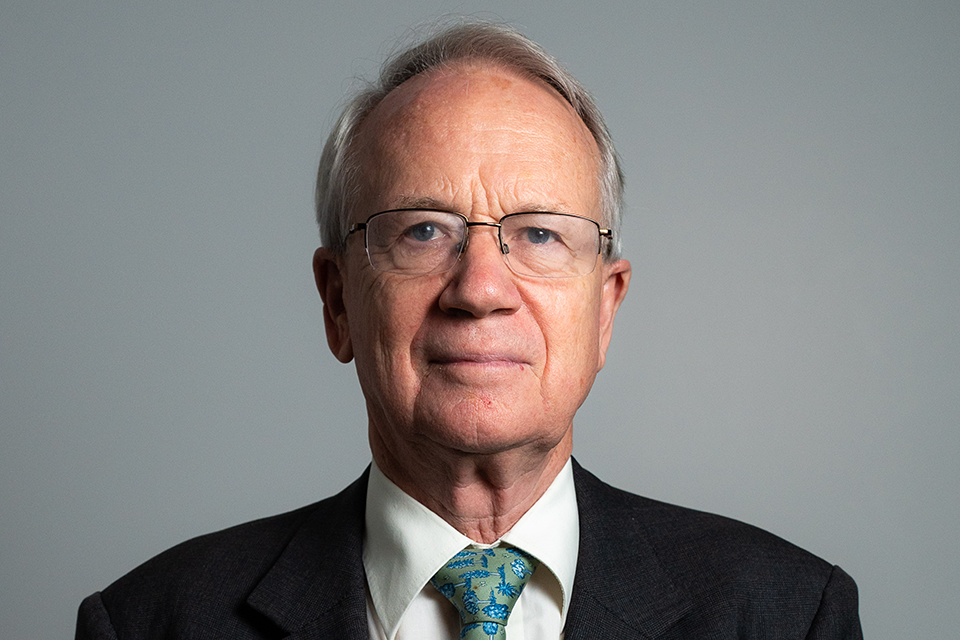The Big Soil Stocktake: closing the data gap
Alan Lovell, Environment Agency Chair speaks at Anthropy 2023 on the importance of closing the data gap on soil health.

When we’re under this sublime dome at the Eden Project it’s tempting to look up. But today let’s focus on what is underneath us, and often overlooked: our soil.
Isabella Tree in her book Wilding, “says soil is the key to life itself…”
“…The great concerns of our time – climate change, natural resources, food production, water control, conservation and human health – all boil down to the condition of the soil’ and ‘[Soil] is the invisible foundation of all that we see emerging before our eyes; the great recycler, the connector.”
We are in danger of taking soils for granted.
Our constant use has not been without risk. Land to grow root crops, maize or winter cereals has caused degradation.
Soil’s carbon stores are limited on agricultural soil. Pollutants have decreased soil pH levels.
In 2019, an Environment Agency State of the Environment report warned:
“Soil biodiversity and many biological processes and functions that it supports are thought to be under threat.”
In England and Wales:
- 4 million hectares of soil are at risk of compaction.
- 2 million hectares of soil are at risk of erosion.
- Our most fertile soils continue to lose carbon each year.
Here is a photo from a visit I went on recently with the first Chair of the Environment Agency. The poles mark where the peat levels were in 1850. A significant drop.
In 2010 soil degradation was calculated to cost £1.2 billion annually. But more than money, we risk losing our daily life support system.
Pressures are increasing. The Climate Change Committee said to reach net zero, we need to change 20% of our land use to tackle climate change. Farmers need healthy soils to withstand the changing climate.
Government knows this. Soil resilience is a key priority in the Sustainable Farming Incentive. Defra’s Environment Improvement Plan commits to bring 60% of England’s agricultural soil into sustainable management by 2030.
Changing behaviours is one step towards saving soils. Understanding them is another. The same 2019 EA report warned: “there are insufficient data on the health of soils.”
Understanding soils is hard. Soils come in many forms and depths. You can’t measure their health from space - you need to be on the ground. By baselining and monitoring soil health, we can evaluate changes and identify improvements.
Many of you here work on soil and gather data every single day. But too often we do this in silos. A lot our data is outdated, with differing methodologies. Soil invertebrates have only been surveyed nationally twice (1998 & 2007). A major evidence gap.
This is beginning to change. But we need your help.
The new Natural Capital Ecosystem Assessment Programme, aided by substantial government investment will establish new baseline data of soil health. Defra are developing a soil health indicator, and plan to publish a new classification framework for soil types in England to underpin future monitoring. Other groundbreaking work to map our soils has been done by the British Geological Society, Cranfield University, UKCEH, and many others.
To close the data gap on soils, we need help from all our soil experts here today. Today I am launching the ‘Big Soil Stocktake’ - to provide total data transparency and accessibility on soil data across all sectors. If we combine our data, and our knowledge, we can increase our understanding.
The message is simple: whether you are an ecologist, academic, farmer, agri- businesses, charity, NGO, developer, landowner, are you sitting on more data than you are sharing? We’ve all got something to gain from greater science, business investment, sustainable development, to food production.
This is a call for collaboration alongside the new NCEA national soil monitoring programme. We want someone to step up to work with, and feed into the new national monitoring scheme where necessary. But are not calling for this to be necessarily controlled by the EA or by NE.
I hope by planting the seeds of the Big Soil Stocktake, we can return to Anthropy 2024 and see a brand-new citizen science initiative.
Nurturing soil is our duty. Our commitment to the future of our planet. Let’s stop treating soil like dirt. It’s time for soil’s underdog story to have the hero’s ending it deserves.